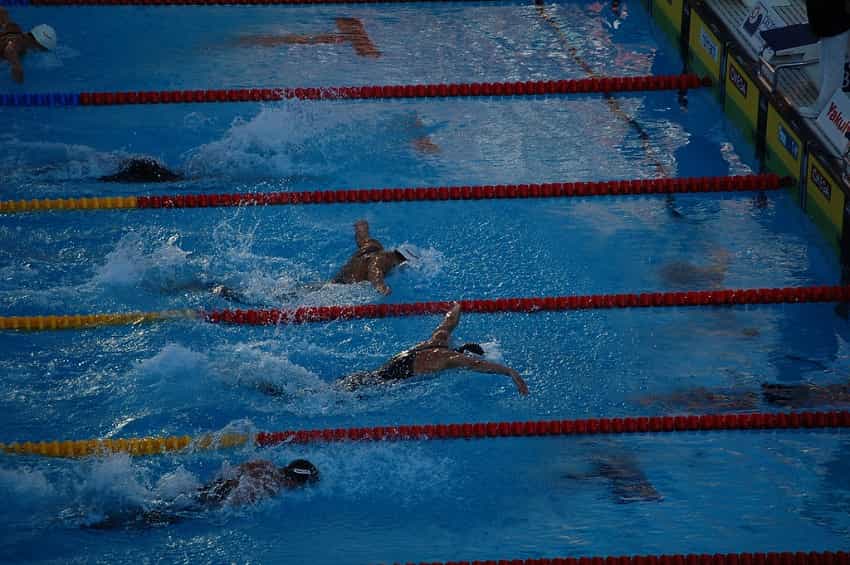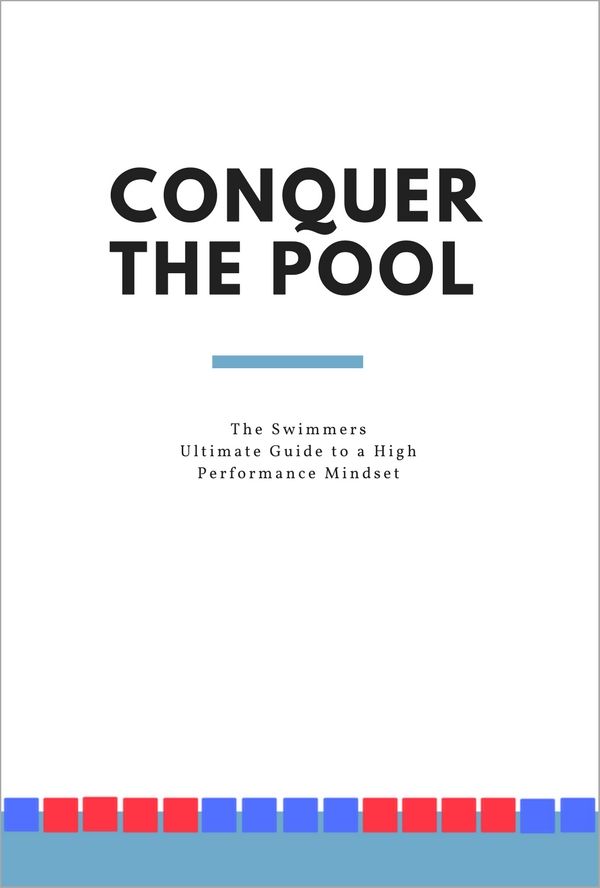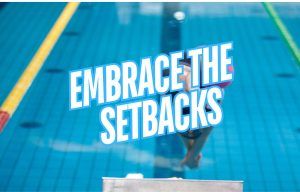We all experience it at one point or another in training and competition: the moment where our shoulders and legs lock up and we die. Here’s how to be mentally prepared to conquer that moment.
Today we are gonna talk about a couple powerful ways to help swimmers learn how to push themselves through “that” moment in competition and training where everything goes to Sucktown.
Let’s get after it:
While swimmers train for different events, distances and strokes, there is one thing that unites us all: the surge of soul-crushing ouchies that devastate us at a particular point during our races.
It could be on the last 50. The final flip turn. Watching a swimmer pass you by. Or not pulling away from a slower swimmer.
Your legs turn to cement. You can barely swing your shoulders. Your flip turns feel like your are twisting through pudding. Your hands slip and claw through the water.
It’s that moment, where things start to really hurt.
But it’s not the physical symptoms that are the worst thing to happen.
It’s the doubt.
The panic.
The giving up.
How to Prepare for the Inevitable Trip to Ouchietown
Is there a way to lessen that specific point of misery?
To make it less hurt-ey?
To make it so that swimmers can cope with it just enough in order to finish races and hard sets with speed and dignity?
Yup.
Here’s two of ‘em that you can use with your swimmers.
1. Visualize yourself conquering the pain.
There are a lot of uses for visualization, from mid-practice imagery to boost performance to prepping yourself for walking onto the pool deck for your first national or international-level meet.
One of my favorite ways to use this tool is to condition against future moments of adversity.
Garrett Weber-Gale, who swam the second leg of the infamous 4x100m freestyle relay at the Beijing Olympics where the Americans upset the French, keeping Michael Phelps’ chance at 8-gold medals in tact, used this type of visualization to help him push through those moments where our body wants to quit.
He would visualize that moment and feeling ahead of time so when it inevitably did happen, he was mentally prepared.
As Weber-Gale notes [1]:
I do visualize that moment–the moment when my arms feel like sandbags, when my legs are burning and my back feels like it’s tightening up like a rubber band. I get myself to the point where I am completely prepared for the pain. After imagining this point for a long time, I know I am able to endure the emotional stress and physical pain. I look forward to this point because I know I will conquer it!
What’s especially awesome about this form of visualization is that you can use it in the middle of those hard swim practices, too!
Swimmers often pull their punches in practice because they worry about “dying” or not being able to take their body to the limit. They coast through the first few reps of the main set to save energy. Or they wait until the last lap to drop the hammer on their effort (Sammy Save-Up, ahem).
This mental exercise can help you better cope with the pain and discomfort that happens during hard parts of training so that you can get more from yourself, more often.
2. Performance cues to push through.
Another way to better steel yourself for *that* moment is to have a performance cue lined up for that exact moment.
The reason that performance cues are so effective is because our brain—although wildly complex and powerful—isn’t all that hot when it comes to multi-focusing.
In reality, we tend to focus on one thing at a time, with our actions following suite.
Now, when things get hurty in the water, that’s exclusively what lock onto. The misery. The pain. The sheer ouchiness of it all. When you think about it, the more you zero in on how much you are hurting, the more your performance falters.
Redirecting your focus with a pre-planned performance cue will help you ward off panic by giving you something specific and tangible to concentrate on. You are basically distracting yourself from the pain with something that will positively affect your swimming.
Simple one-word performance cues, when used by elite track athletes, gave a 2% boost in 100m sprint performance (Mallet, 1997). The athletes remarked that the cues kept their mind from wandering, helped keep their technique together, and of course, focused their efforts.
Performance cues can and should be super easy and uncomplicated.
The shorter, the better. For example:
- When my legs start locking up I lean on the simple keyword, “Boost!”
- When I am 10m away from the wall and I need to bury my head, “Hulk smash!”
The Truth About Pain
The sneaky reality of pain is this: it’s subjective.
It’s dependent on how you are feeling emotionally and what we are focused on.
Think about it: you know those moments in training or competition when your stroke feels great? And you are able to really push yourself? It’s the exact same pain you experience when your stroke is wobbly and you are snow-plowing the water.
In the same way that some swimmers experience anxiety as excitement and not as stress, the way we “suffer” is based on how we experience and interpret it.
That’s it.
When you don’t expect or plan for the plan, it hits you like a metric ton of water-logged swim towels.
If you are ready for it, if you have a plan for pushing through, the weight of the agony and misery won’t catch you off guard and knock you off your race plan.
Knowing this, you can do things to better prepare and condition yourself so that when you start to physically fall apart in competition (and training!), you don’t also fall apart mentally.
Visualize yourself overcoming and pushing through the pain.
Write out a handful of cues to keep you focused.
Where other swimmers will see adversity, you will see opportunity.
 Frustrated with inconsistent performances in training and competition?
Frustrated with inconsistent performances in training and competition?
Tired of choking on race day? Want to finally conquer your mindset so that you can give your PB’s the beating they deserve?
Conquer the Pool: The Swimmer’s Ultimate Guide to a High Performance Mindset might just be for you. Used and trusted by some of the top clubs and swimmers on the planet.
More Stuff Like This:
Mental Toughness for Swimmers: You are Far Tougher Than You Think. Want to become mentally tougher? What if I told you that you already are mentally tough?
Why Change is So Hard in the Pool (and How to Make It Easier). We all want change in some measure—so why is it so dang difficult to make happen? Here’s the reality behind making change that actually sticks in the pool.



 Frustrated with inconsistent performances in training and competition?
Frustrated with inconsistent performances in training and competition? 











